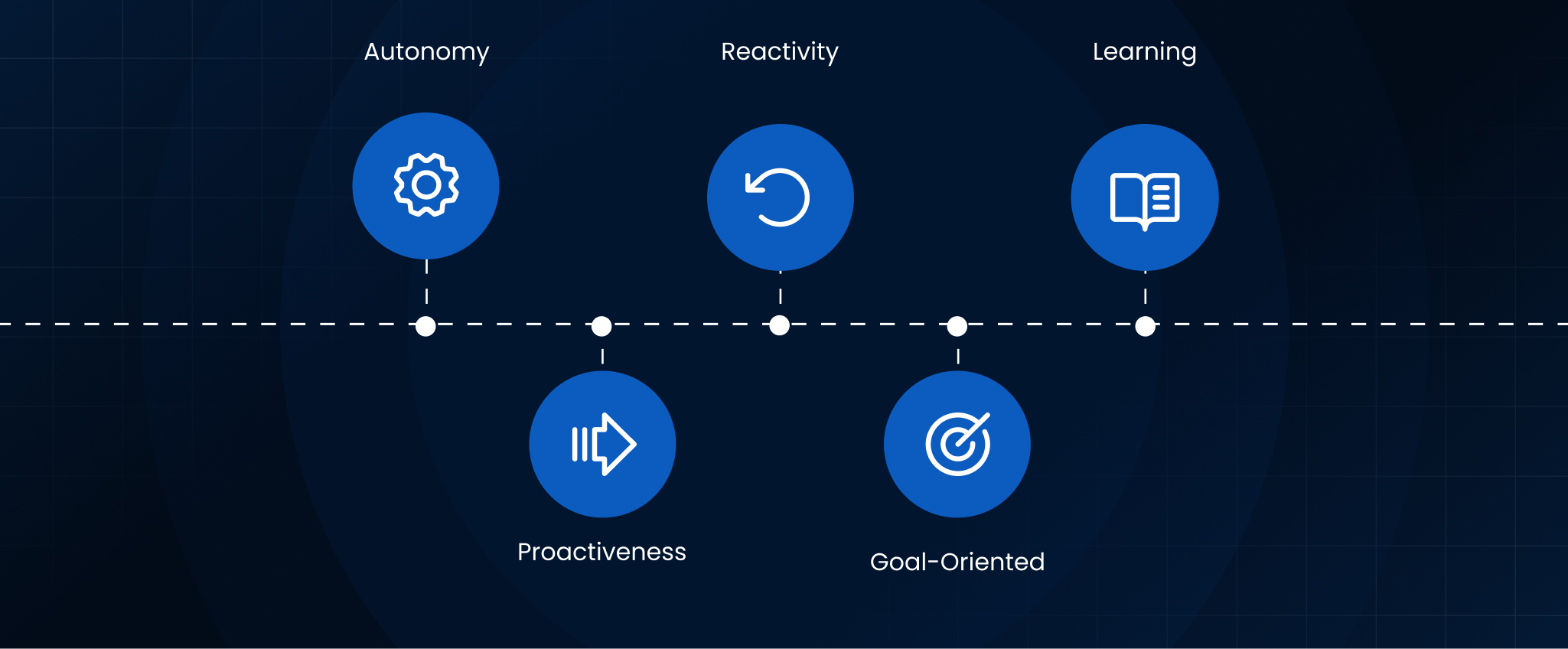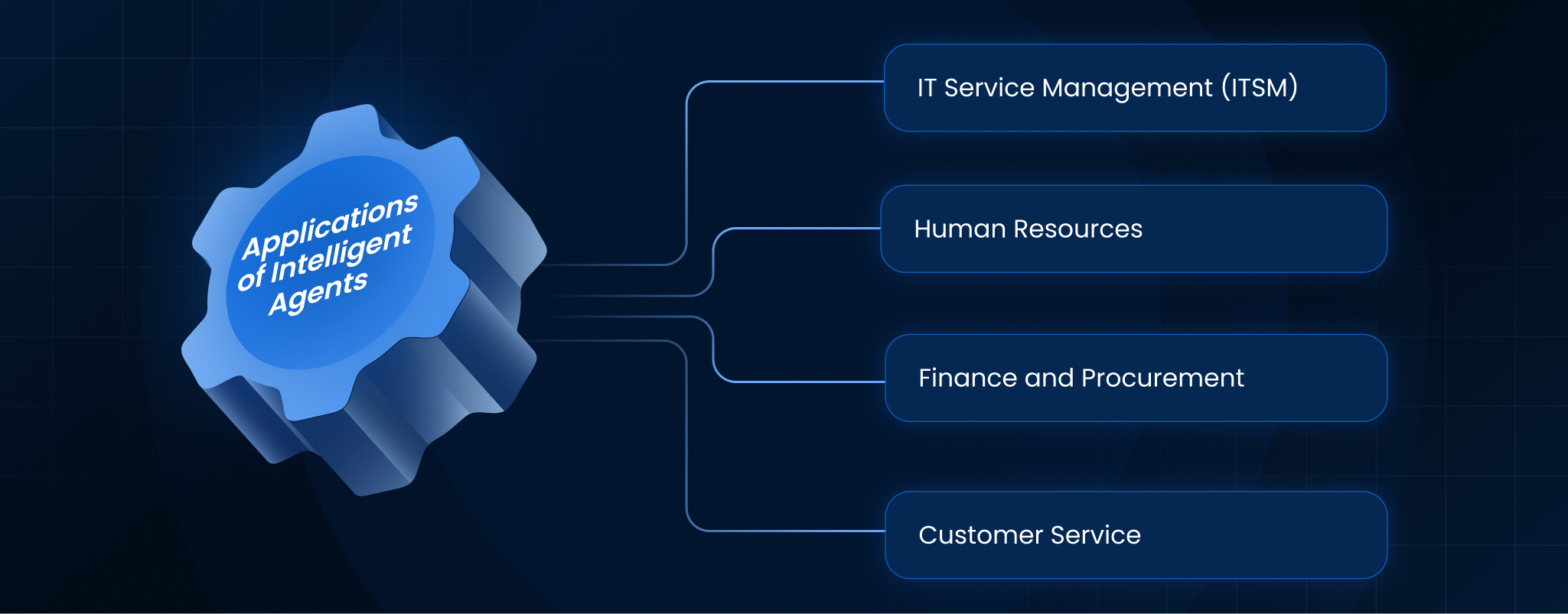Introduction
As a technology leader in a large American company, you’re constantly balancing innovation with stability. Your ticketing systems are the central nervous system of your employee support, but they’re under incredible strain. Ticket volumes are exploding, employee expectations are higher than ever, and finding skilled support staff is a perpetual challenge. What if you could not just manage this complexity, but transcend it? The solution is here, and it’s powered by intelligent agents. These aren’t the simple chatbots of yesterday; they are sophisticated digital workers poised to redefine your IT, HR, and Finance operations for 2025 and beyond. Think of them as your new, scalable, and incredibly efficient team members.
Unlocking New Efficiencies with Intelligent Agents
In today’s fast-paced corporate environment, the quest for efficiency is relentless. The traditional model of human-only support desks is becoming a bottleneck, leading to frustrated employees and overwhelmed IT teams. This is precisely where intelligent agents step in, not merely as a stop-gap measure but as a fundamental strategic shift. They offer a way to handle the sheer volume and complexity of internal support requests with unparalleled speed and accuracy. By automating repetitive tasks and resolving issues instantly, these intelligent agents free up your human experts to focus on high-impact projects that drive real business value.
What Are Intelligent Agents in Artificial Intelligence?
Imagine you hired a new IT support specialist. You wouldn’t just expect them to answer questions; you’d expect them to perceive a problem (like a password reset request), reason about the best course of action (verify identity, access the right system), and then act on it (execute the reset). Intelligent agents in artificial intelligence do exactly that, but digitally.
Think of an intelligent agent as an autonomous digital entity. It uses sensors to perceive its environment (like reading a new ticket in ServiceNow) and actuators to perform actions (like resetting a password in Active Directory). Its “brain,” powered by AI, allows it to make decisions and learn from outcomes, making it one of the most powerful tools in modern technology. These intelligent agents are designed to operate independently to achieve specific goals, making them true digital workers.
The Core Anatomy of Modern Intelligent Agents
Not all automated systems are created equal. What distinguishes true intelligent agents is a specific set of capabilities that allow them to function with a degree of autonomy and smarts that older technologies lacked. Understanding these characteristics is key to appreciating their transformative potential for your enterprise. These are not simple scripts; they are dynamic systems designed to perceive, reason, and act within your complex digital ecosystem. For a technology leader, recognizing these traits helps in evaluating which intelligent agents can deliver on the promise of a more efficient and responsive organization.
Key Characteristics of Intelligent Agents
For intelligent agents to be effective, they need to possess a few core traits. These characteristics ensure they can handle the dynamic and unpredictable nature of a large enterprise.
- Autonomy: They operate without direct human intervention. An intelligent agent can independently decide to escalate a ticket or provision software after an approval.
- Reactivity: They perceive their environment and respond to changes in a timely fashion. For example, if a system they need is down, they can pause a task and notify an administrator.
- Proactiveness: They don’t just react; they take initiative. An intelligent agent might notice a user is repeatedly locked out and proactively suggest a more secure authentication method.
- Learning: The best intelligent agents learn from their interactions. With each ticket resolved, they get better at understanding user intent and finding the right solution faster.
- Goal-Oriented: They are designed with specific objectives in mind, whether it’s resolving a support ticket, onboarding a new hire, or processing an invoice.

How Businesses Are Winning with Intelligent Agents Today
The application of intelligent agents has moved from theoretical to practical, delivering measurable results across numerous sectors. In the high-stakes environment of large US corporations, these digital workers are becoming indispensable. They are streamlining operations, cutting costs, and dramatically improving both the employee and customer experience. From the back office to the front lines, intelligent agents are tackling complex workflows that were once the exclusive domain of human employees, proving their value as a core component of digital transformation. The most forward-thinking companies are already leveraging these tools to gain a significant competitive edge.
Applications of Intelligent Agents Across Industries
While the possibilities are vast, many large companies are seeing immediate value by deploying intelligent agents in a few key areas:
-
IT Service Management (ITSM): This is the sweet spot. Intelligent agents can handle everything from password resets and software installation requests to troubleshooting network issues and managing access permissions, resolving up to 80% of common IT tickets instantly.
-
Human Resources: Imagine new hires being onboarded flawlessly. Intelligent agents can manage paperwork, set up accounts, and answer policy questions, ensuring a smooth day-one experience.
-
Finance and Procurement: They can automate the entire procure-to-pay cycle, from creating purchase orders to processing invoices and answering payment status queries from vendors.
-
Customer Service: Beyond just answering FAQs, they can process returns, update account information, and guide customers through complex troubleshooting steps, freeing up human agents for more sensitive issues.

Pioneering the Future of Work with Leena AI’s Intelligent Agents
Choosing the right partner for your AI journey is critical. You need a platform that understands the scale, security, and integration challenges of a large enterprise. This is where Leena AI excels. We aren’t just building chatbots; we are pioneering the use of Agentic AI, a new class of intelligent agents that can reason, plan, and execute complex, multi-step tasks across your entire tech stack. Our intelligent agents are purpose-built to function as true digital employees for your IT, HR, and Finance departments.
How Leena AI Implements Intelligent Agents in HR and IT Operations
At Leena AI, we go beyond simple ticket deflection. Our intelligent agents are designed to resolve, not just respond. For example, when an employee requests access to a specific software application, our agent doesn’t just create a ticket for a human to handle.
Instead, the Leena AI intelligent agent autonomously performs the entire workflow:
- It understands the request in natural language.
- It checks the employee’s role and department to verify eligibility.
- It seeks and obtains approval from the employee’s manager through a seamless chat interface.
- Once approved, it securely integrates with your identity management system to grant the license.
- Finally, it confirms with the employee that the access has been granted.
This entire process happens in minutes, not days. This is the power of true Agentic AI, and it’s what sets our intelligent agents apart.
Integrating Leena AI’s Intelligent Agents with Existing IT Systems
We know you’ve invested millions in your existing systems like ServiceNow, Workday, and Microsoft Azure. A rip-and-replace strategy is a non-starter. That’s why Leena AI’s platform is built for deep and seamless integration. Our intelligent agents use pre-built connectors and robust APIs to communicate and work with the tools your team already uses every day. This approach ensures a fast time-to-value, minimizes disruption, and leverages your existing technology investments, making the adoption of our intelligent agents a smooth and logical next step in your IT modernization journey.
Looking Ahead: The Evolution of Intelligent Agents
The field of AI is moving at an incredible pace, and intelligent agents are at the forefront of this evolution. As a technology leader, your focus must be on what’s next. The conversation is rapidly shifting from task automation to full workflow orchestration, driven by breakthroughs in how these agents perceive, reason, and learn. Staying ahead of these trends will be the difference between leading the market and falling behind. The next generation of intelligent agents will be more predictive, more collaborative, and even more deeply integrated into the fabric of the enterprise.
The Future of Intelligent Agents: Trends and Innovations
Looking toward the immediate future, several key trends are shaping the development of intelligent agents:
-
Hyperautomation: This is the big one. Instead of just automating single tasks, companies will use a combination of AI, machine learning, and automation tools to orchestrate entire business processes. Intelligent agents will act as the “conductors” of this digital orchestra.
-
Generative AI Integration: The ability of models like GPT-4 to generate human-like text and even code will make intelligent agents more conversational, more capable of summarizing complex ticket histories, and even suggesting solutions for novel problems.
-
Predictive and Proactive Support: Future intelligent agents won’t just wait for a ticket to be filed. They will analyze system-wide data to predict potential issues, like an impending server failure or a department nearing its software license limit, and act proactively to prevent them.
-
Enhanced Security Focus: As intelligent agents gain more privileged access, securing them will be paramount. Expect to see new security frameworks specifically designed for non-human workers, focusing on robust identity management and threat detection.
In conclusion, intelligent agents represent a strategic imperative for any large enterprise looking to thrive in 2025 and beyond. They offer a clear path to resolving the chronic challenges of ticket overload, employee friction, and operational inefficiency. By embracing these sophisticated digital workers, you can transform your support functions from cost centers into strategic enablers of business growth, creating a more productive and satisfying work environment for everyone.
Frequently Asked Questions
1. What is the main difference between a chatbot and an intelligent agent?
A chatbot typically follows a predefined script to answer common questions. An intelligent agent, however, is autonomous. It can understand intent, make decisions, and perform actions across multiple systems to actually resolve a user’s issue from start to finish.
2. How secure are intelligent agents when connected to our core systems?
Security is a foundational element. Reputable platforms for intelligent agents, like Leena AI, employ enterprise-grade security measures, including data encryption, role-based access control, and comprehensive audit logs, to ensure they interact with your systems safely and securely.
3. What is the typical ROI for implementing intelligent agents in IT support?
While it varies, many large companies see a significant ROI within the first year. This is driven by “hard” savings from ticket deflection and automation, as well as “soft” benefits like improved employee productivity and satisfaction. Many organizations see resolution costs drop by over 60% for tickets handled by intelligent agents.
4. Do we need a team of AI experts to manage these intelligent agents?
No. Modern platforms are designed with user-friendly, no-code interfaces. Your existing IT or HR process owners can easily build, manage, and refine the workflows for your intelligent agents without needing to write a single line of code.
5. How do intelligent agents handle complex issues they can't solve?
Intelligent agents are designed for seamless human-agent collaboration. When an issue is too complex or requires a human touch, the agent intelligently gathers all the relevant context and hands it off to the right human expert, ensuring a smooth transition without forcing the employee to repeat themselves.
6. Can intelligent agents adapt to our company's specific workflows?
Absolutely. The power of leading intelligent agents lies in their customizability. They can be trained on your company’s knowledge bases and configured to follow your unique business rules and approval processes, ensuring they operate as a natural extension of your team.
7. How do we measure the success of our intelligent agents?
Success is measured through a clear set of key performance indicators (KPIs). These typically include metrics like first-contact resolution rate, mean time to resolution (MTTR), employee satisfaction scores (CSAT), and the overall percentage of tickets successfully resolved without human intervention.













